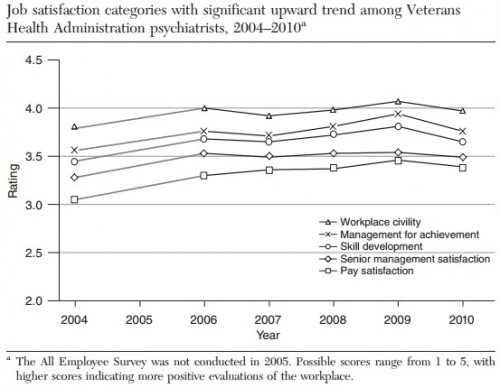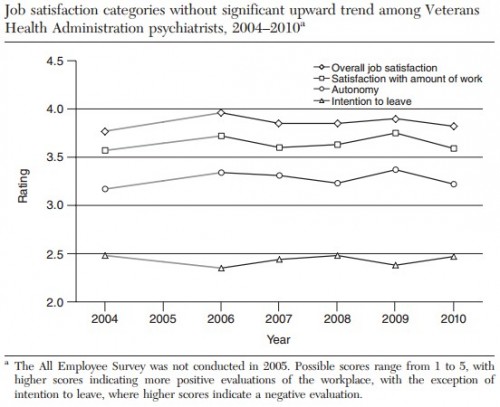From “Changes in VA Psychiatrists’Attitudes About Work Environment and Turnover During Mental Health Service Enhancement,” (PDF) by David Mohr, Mark Bauer, and Robert Penfold:
In 2004, VHA introduced the Comprehensive Mental Health Strategic Plan, which required greater integration and coordination of mental health services into overall health care. Key recommendations included improving equity of access to care, developing and implementing a full continuum of recovery-oriented services, increasing substance abuse treatment services, and addressing long-term care needs.
In subsequent years, additional funds were devoted to the strategic plan beyond the historical funding amount. In 2008, VA introduced an update to the Uniform Mental Health Services Handbook, offering more than 200 initiatives and 400 mental health services. A key component was greater focus and initiative for primary care and mental health integration based on collaborative care models. Subsequently, more programs, such as suicide prevention and readjustment counseling, were created for returning veterans with mental health issues. Expectations for implementation of the strategic plan evolved at a rapid pace and required substantial changes in resource allocations and decision making. Facilities experienced budgetary challenges in responding quickly to the changes.
And how did VA psychiatrists react to all this? In general, job satisfaction went up or held steady.

There are, of course, a number of limitations. I believe the study is ungated after free registration, so you can read about them yourself. (Correct me if I’m wrong about the free registration. Hard for me to tell at work.)



